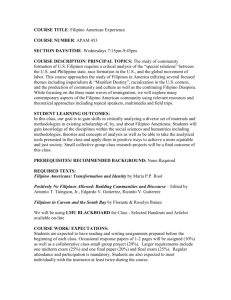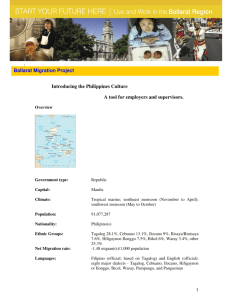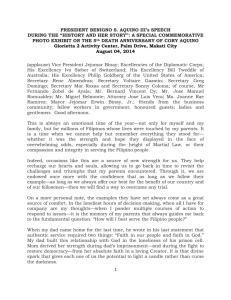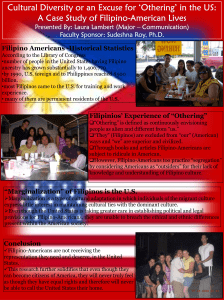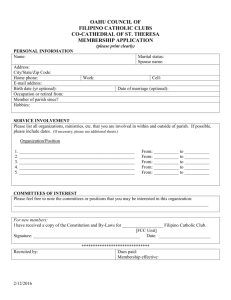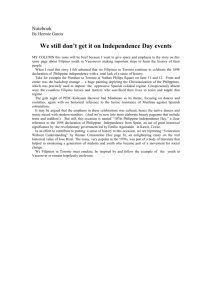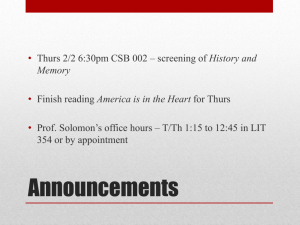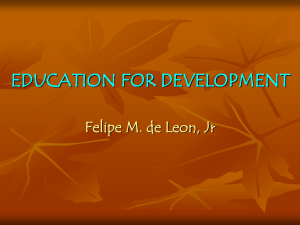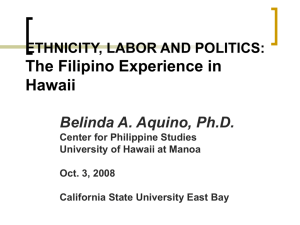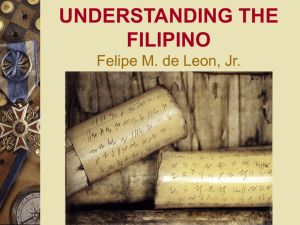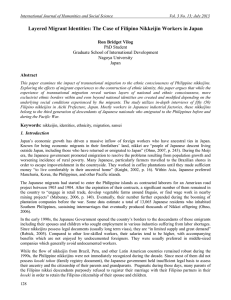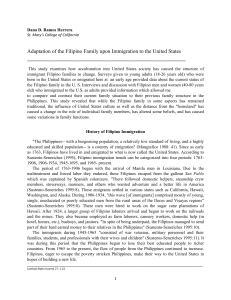Differential Inclusion: Race, Gender, & Resisting Homelessness
advertisement
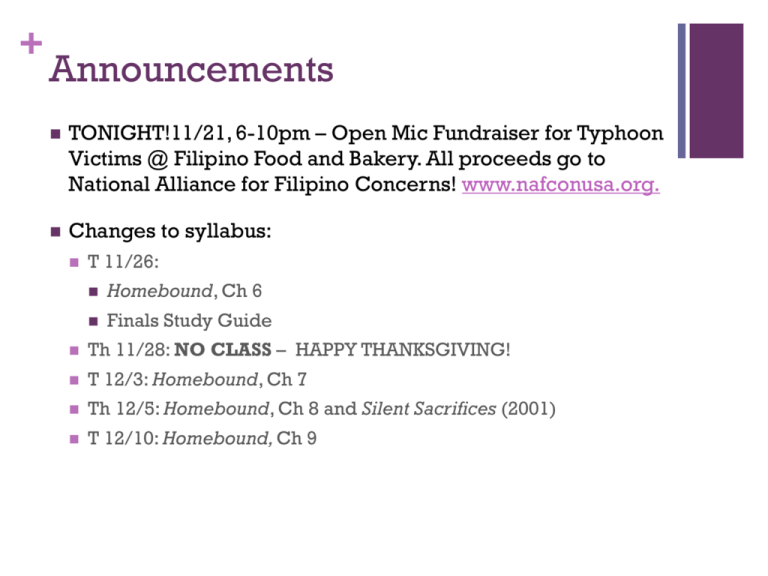
+ Announcements TONIGHT!11/21, 6-10pm – Open Mic Fundraiser for Typhoon Victims @ Filipino Food and Bakery. All proceeds go to National Alliance for Filipino Concerns! www.nafconusa.org. Changes to syllabus: T 11/26: Homebound, Ch 6 Finals Study Guide Th 11/28: NO CLASS – HAPPY THANKSGIVING! T 12/3: Homebound, Ch 7 Th 12/5: Homebound, Ch 8 and Silent Sacrifices (2001) T 12/10: Homebound, Ch 9 + Differential Inclusion Race, Gender, & Resisting Homelessness + MACRO & micro Macro forces of post-65 Philippine immigration: 1. US imperialism 2. US neocolonialism 3. Marcos Dictatorship 4. Cold War Liberalism Macro forces always exist in tension with micro forces individual desire and agency plus familial considerations issues of race, class, & gender + forces of homelessness racism links macro forces of immigration to forces of homelessness encountered after immigration Racist perceptions of Filipinos keep them apart from the American nation yet simultaneously include them + differential inclusion Why would a group of people be integral to a nation only because they can be subordinated (47)? How are Filipinos integral to US national economy and power ? How are Filipinos integral to US culture and identity? + Dichotomous Identities “…neither imperialism nor colonialism is a simple act of economic accumulation and acquisition. They are also subjectconstituting projects, supported and impelled by impressive ideological formations that designate certain countries and people as requiring and even beseeching domination from the more ‘civilized’ ones… the Philippine-American war and the subsequent colonization of the Philippines constituted not only economic or territorial but also subject-making projects – fashioning both the American and the Filipino subjects in ways that were, and continue to be, mutually implicated in each other” (50) to define self you must also define the other + self & other Whiteness Masculinity Civilization Progress Brown-ness Emasculation Savagery Backwardness nation race gender & sexuality + U.S. Masculinity & Conquest just as race is a social construction so is gender race and gender are not equivalent but are entwined gender norms affect and are affected by social, political, & economic contexts Ex: the hypermasculine black male versus the hyperfeminine Asian woman macro forces of 1898: closing of western frontier urbanization & industrialization black emancipation & enfranchisement women’s suffrage War and conquest become demonstration and proof of American masculinity. + Racialized Sexuality First major wave of Filipino immigration into US: almost 150,000 nationally by 1920 94% male, agricultural peasant class and under the age of 30 subject to anti-miscegenation acts, alien land laws, & de facto segregation from “little brown brothers” to “little brown monkeys” “When Filipino men refused to be just working bodies and instead flaunted their sexual bodies, they were racialized as sexually threatening” (67) transnational home making as survival strategy – a response to enforced homelessness ever since first wave of Filipino immigration + transnational homes & families Filipinos were transnational even before they left their homeland returning “home” can provide validation and social status denied in U.S. (87) one is always Filipino in the US, but one becomes American in the Philippines remittances & familial obligations simultaneously empower and take a toll on immigrants English education system, popular culture, American commodities & businesses, military presence “I left my family to be a good mother” connections to Philippines demonstrate an insistence on being “home bound” rather than “homeless” (97)
